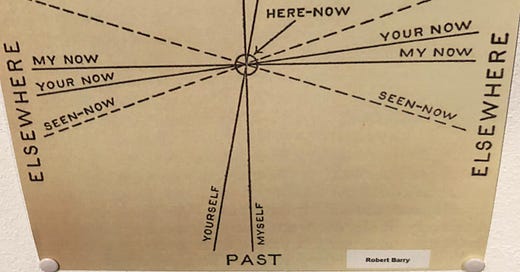Welcome back to The Notebooks. If you missed the last, this is where we were.
If you’re coming in fresh, The Notebooks is a piece of long form writing, based on a true story, served in weekly instalments. You can read it yourself or listen to me read it in the VoiceOver.
Pieces in The Notebooks may have a song-matching, like wine and cheese.
Song-match this piece with: Join The Dots by Roots Manuva (although actually — listen to the whole perfect album: Run Come Save Me).
Not your quick-release serotonin fix, The Notebooks are in it for the long haul.
Now re-opening The Notebooks to sometime in 2011….
—
Sometimes, to tell a story, you must tell it out of order.
Between December 2010 and December 2012, I lived in Thailand, in a town in the northwest of the country called Mae Sot. It is pretty wild, on the border with Myanmar (Burma).
There’s a bridge over the river at the border — and a heavily-armed checkpoint on both sides.
This was about a year and a half after I finished my Masters, adrift, searching through the dying days of autumn 2010 for a job, any job, in the post-crisis wreckage. I was 25 and had worked lots of places — ski school, a coffee shop, an outdoors gear shop, renovating a William Morris-inspired wooden bungalow in Seattle, you name it — but I’d never had what you might call a real job, an office job.
Or anything close to it.
Then I got a bite after sharing a writing sample from my thesis — about literacy in first encounters with pre-Columbian cultures1 — with some guys who worked for an obscure human rights NGO on the Burma border. They liked my vaguely legal background (despite having never worked as a lawyer) and my ability to edit a sentence. They hired me — my first ever desk job — and I escaped New York winter for Mae Sot.
Mae Sot is quietly famous in the NGO world. It’s a well-known posting for public health and humanitarian workers, for migration experts, for malaria researchers, for UNHCR officials, for visiting diplomats, politicians and journalists.
Everyone there is hunting for the right by-line or soundbite or photo op or metric for their next donor report.
There are seven official refugee camps nearby — or nine, depending on who you ask. There are migrant schools, makeshift hospitals, political prisoner assistance programs — and NGOs, both local and international.
The local ones — including the one I worked for — operated with limited resources, in utmost secrecy, through networks of undercover field researchers across the border.2
Mae Sot is a Petri dish of the aid economy. It is a place where you must know the difference between a refugee, an IDP and a migrant worker — and how your programme supports one or the other. Where you must know what “subaltern” means and how to use it in daily parlance without sounding like a twat.3
Where you must be able to spot a sex tourist at fifty paces.
Over the border in Burma, where the real prize is teak or gold or rubies, various armed groups vie for control of patches of territory, cloaked in the language of self-determination or moral superiority.
The town is awash in money, most of it dirty.
—
But this part of the tale picks up after I’d already been living out there for many months.
Keep reading with a 7-day free trial
Subscribe to Life Litter to keep reading this post and get 7 days of free access to the full post archives.





